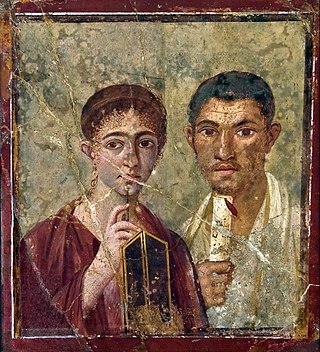
In the study of history as an academic discipline, a primary source is an artifact, document, diary, manuscript, autobiography, recording, or any other source of information that was created at the time under study. It serves as an original source of information about the topic. Similar definitions can be used in library science and other areas of scholarship, although different fields have somewhat different definitions.

The Library of Congress National Digital Library Program (NDLP) is assembling a digital library of reproductions of primary source materials to support the study of the history and culture of the United States. The NDLP brought online 24 million books and documents from the Library of Congress and other research institutions.

The European Library is an Internet service that allows access to the resources of 49 European national libraries and an increasing number of research libraries. Searching is free and delivers metadata records as well as digital objects, mostly free of charge. The objects come from institutions located in countries which are members of the Council of Europe and range from catalogue records to full-text books, magazines, journals and audio recordings. Over 200 million records are searchable, including 24 million pages of full-text content and more than 7 million digital objects. Thirty five different languages are represented among the searchable objects.
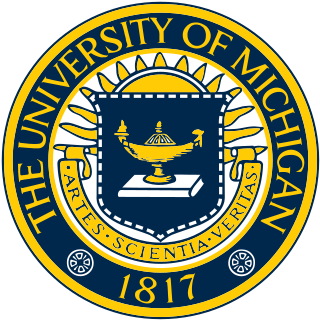
The University of Michigan Library is the academic library system of the University of Michigan. The university's 38 constituent and affiliated libraries together make it the second largest research library by number of volumes in the United States.
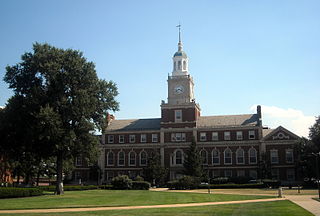
The Moorland–Spingarn Research Center (MSRC) in Washington, D.C., is located on the campus of Howard University on the first and ground floors of Founders Library. The MSRC is recognized as one of the world's largest and most comprehensive repositories for the documentation of the history and culture of people of African descent in Africa, the Americas, and other parts of the world. As one of Howard University's major research facilities, the MSRC collects, preserves, organizes and makes available for research a wide range of resources chronicling the Black experience. Thus, it maintains a tradition of service which dates to the formative years of Howard University, when materials related to Africa and African Americans were first acquired.
The California Digital Library (CDL) was founded by the University of California in 1997. Under the leadership of then UC President Richard C. Atkinson, the CDL's original mission was to forge a better system for scholarly information management and improved support for teaching and research. In collaboration with the ten University of California Libraries and other partners, CDL assembled one of the world's largest digital research libraries. CDL facilitates the licensing of online materials and develops shared services used throughout the UC system. Building on the foundations of the Melvyl Catalog, CDL has developed one of the largest online library catalogs in the country and works in partnership with the UC campuses to bring the treasures of California's libraries, museums, and cultural heritage organizations to the world. CDL continues to explore how services such as digital curation, scholarly publishing, archiving and preservation support research throughout the information lifecycle.

EuroDocs: Online Sources for European History is a digital history portal that offers links to online facsimiles, transcriptions, and translations of European primary historical sources. The sponsoring organization is the Harold B. Lee Library at Brigham Young University, where it was begun in 1995 by Richard Hacken, European Studies Bibliographer.
British History Online is a digital library of primary and secondary sources on medieval and modern history of Great Britain and Ireland. It was created and is managed as a cooperative venture by the Institute of Historical Research, University of London and the History of Parliament Trust. Access to the majority of the content is free, but other content is available only to paying subscribers.
Digital history is the use of digital media to further historical analysis, presentation, and research. It is a branch of the digital humanities and an extension of quantitative history, cliometrics, and computing. Digital history is commonly digital public history, concerned primarily with engaging online audiences with historical content, or, digital research methods, that further academic research. Digital history outputs include: digital archives, online presentations, data visualizations, interactive maps, timelines, audio files, and virtual worlds to make history more accessible to the user. Recent digital history projects focus on creativity, collaboration, and technical innovation, text mining, corpus linguistics, network analysis, 3D modeling, and big data analysis. By utilizing these resources, the user can rapidly develop new analyses that can link to, extend, and bring to life existing histories
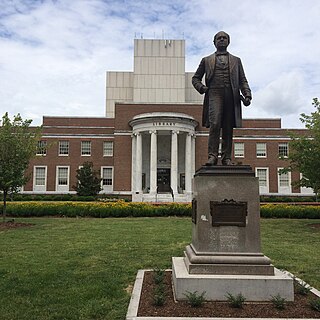
The University of North Carolina at Greensboro University Libraries system has two branches on campus, both located in Greensboro, NC. These include the Walter Clinton Jackson Library and the Harold Schiffman Music Library. Affiliated campus libraries include the Teaching Resource Center and SELF Design Studio in the School of Education, the Interior Architecture Library in the Gatewood Studio Arts Building, and the Intercultural Resource Center located in the Elliot University Center. During the fall and spring semesters, Jackson Library provides a 24/5 study space for UNCG students, faculty and staff with UNCG ID from 12 am Monday – 7:00 am Friday. Michael A. Crumpton is the current Interim Dean of the libraries.
A digital library, also called an online library, an internet library, a digital repository, a library without walls, or a digital collection, is an online database of digital objects that can include text, still images, audio, video, digital documents, or other digital media formats or a library accessible through the internet. Objects can consist of digitized content like print or photographs, as well as originally produced digital content like word processor files or social media posts. In addition to storing content, digital libraries provide means for organizing, searching, and retrieving the content contained in the collection. Digital libraries can vary immensely in size and scope, and can be maintained by individuals or organizations. The digital content may be stored locally, or accessed remotely via computer networks. These information retrieval systems are able to exchange information with each other through interoperability and sustainability.
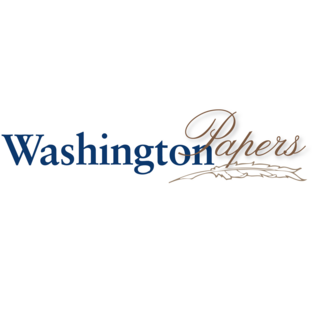
The WashingtonPapers, also known as The Papers of George Washington, is a project dedicated to the publication of comprehensive letterpress and digital editions of George and Martha Washington’s papers. Founded at the University of Virginia in 1968 as the Papers of George Washington, the Washington Papers is an expansive project that includes the papers and documents of George Washington as well as of individuals close to him. The Washington Papers aims to place Washington in a larger context and to bring individuals, such as Martha Washington and Washington family members, into sharper focus. The project is currently headed by editor in chief and director Jennifer E. Steenshorne, and is the largest collection of its type. The project is funded in part by the National Endowment for the Humanities, the National Historical Publications and Records Commission, the Packard Humanities Institute, the Mount Vernon Ladies' Association, the University of Virginia, the Florence Gould Foundation, and other private donors.
The Vietnam Center and Archive collects and preserves the documentary record of the Vietnam War. The Vietnam Center and Archive, part of Texas Tech University, is the nation's largest and most comprehensive collection of information on the Vietnam War. On August 17, 2007, the Texas Tech Vietnam Center became the first U.S. institution to sign a formalized exchange agreement with the State Records and Archives Department of Vietnam. This opens the door for a two-way exchange between the entities.
The JISC Digitisation Programme was a series of projects to digitise the cultural heritage and scholarly materials in universities, libraries, museums, archives, and other cultural memory organizations in the United Kingdom, from 2004 to 2010 The program was managed by the UK's Joint Information Systems Committee, the body that supports United Kingdom post-16 and higher education and research in support of learning, teaching, research and administration in the context of ICT.
The Handel Reference Database (HRD) is the largest documentary collection on George Frideric Handel (1685–1759) and his times. It was launched in January 2008 on the server of the Center for Computer Assisted Research in the Humanities (CCARH) at Stanford University. Originally assembled by Ilias Chrissochoidis to support his PhD dissertation "Early Reception of Handel's Oratorios, 1732–1784: Narrative-Studies-Documents", it now includes about 4,000 items and 800,000 words. HRD is organized chronologically, covering the period from 1685 to 1784 and focusing on Handel's British career and reception. It includes transcriptions of printed and manuscript sources, some of which remain unpublished and external links to early secondary literature on the composer. The project received financial support from Houghton Library, Harvard University (2010–11) and UCLA's William Andrews Clark Memorial Library (2011–12).

The Montana State University Library (MSU Library) is the academic library of Montana State University, Montana's land-grant university, in Bozeman, Montana, United States. It is the flagship library for all of the Montana State University System's campuses. In 1978, the library was named the Roland R. Renne Library to honor the sixth president of the university. The library supports the research and information needs of Montana's students, faculty, and the Montana Extension Service.
The Louise Noun-Mary Louise Smith Iowa Women's Archives is located on the third floor of the Main Library in the University of Iowa Libraries system in Iowa City, Iowa. It was funded when Louise Noun sold a Frida Kahlo painting titled "Self Portrait with Loose Hair" for $1.65 million through Christie's in New York on May 15, 1991. "It is fitting that the Archives was funded by the sale of a Frida Kahlo painting…[as] Kahlo's paintings have been rescued from obscurity in recent years…the IWA was meant to rescue the papers of Iowa women from obscurity, neglect, or destruction…"

The GG Archives is a large, privately held archive of genealogy, military, and other ephemera dating from the mid-1800s through 2000. The site has over 6,000 static web pages and 20,000 images. The archives are composed of artificial collections of ephemera in twelve topical areas. The site has since received numerous awards.